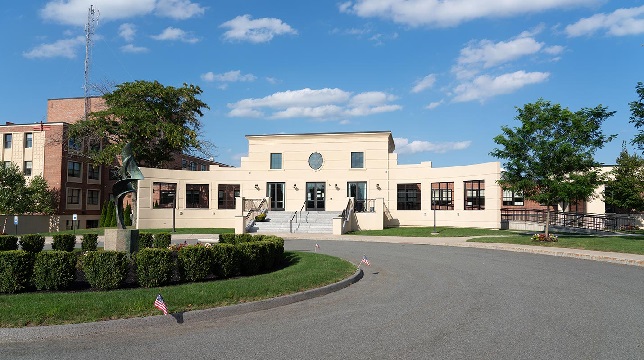In the midst of the opioid epidemic and the broader challenges of substance abuse, finding effective treatment for drug addiction is paramount. Fortunately, Massachusetts is home to a myriad of rehab facilities offering personalized care and comprehensive programs to support individuals on their journey to recovery. These facilities provide a range of treatment modalities, therapeutic approaches, and supportive services tailored to meet the unique needs of each patient. In this article, we will explore the landscape of drug rehab ma, highlighting the personalized care they offer for drug addiction recovery.
Understanding Drug Addiction:
Drug addiction is a complex disease that affects the brain and behavior, leading to compulsive drug seeking and use despite harmful consequences. Substance abuse can have devastating effects on an individual’s physical health, mental well-being, relationships, and overall quality of life. Effective treatment for drug addiction requires a multifaceted approach that addresses the underlying factors contributing to substance abuse and provides support for long-term recovery.
Types of Rehab Facilities:
Inpatient Rehab Centers: Inpatient rehab centers, also known as residential treatment programs, provide round-the-clock care and supervision in a structured environment. Patients reside at the facility for the duration of their treatment, participating in therapy sessions, support groups, and recreational activities. Inpatient rehab is ideal for individuals with severe addiction or co-occurring mental health disorders who require intensive treatment and a supportive community.
Outpatient Rehab Centers: Outpatient rehab centers offer flexible treatment options that allow patients to attend therapy sessions and recovery programs while living at home. Outpatient treatment may include individual counseling, group therapy, medication management, and relapse prevention education. This option is suitable for individuals with mild to moderate addiction who have strong support systems and can manage their daily responsibilities while undergoing treatment.
Detoxification Centers: Detoxification, or detox, is the process of eliminating drugs or alcohol from the body and managing withdrawal symptoms under medical supervision. Detox centers provide a safe and supportive environment for individuals to undergo detoxification before transitioning to further treatment. Medical staff monitor patients’ vital signs, administer medications to alleviate withdrawal symptoms, and provide emotional support during this challenging phase of recovery.
Dual Diagnosis Treatment Centers: Dual diagnosis treatment centers specialize in addressing co-occurring substance abuse and mental health disorders. Many individuals struggling with addiction also experience underlying mental health issues such as depression, anxiety, or trauma. Dual diagnosis treatment centers offer integrated treatment plans that address both conditions simultaneously, providing comprehensive care and support for individuals with complex needs.
Holistic Rehab Centers: Holistic rehab centers take a comprehensive approach to addiction treatment, addressing the physical, emotional, and spiritual aspects of recovery. These centers may offer a range of holistic therapies and alternative treatments such as acupuncture, yoga, meditation, massage therapy, and nutritional counseling. Holistic rehab programs aim to heal the whole person and promote overall well-being in addition to addressing substance abuse issues.
Personalized Care Approach:
Massachusetts rehab facilities are known for their personalized care approach, which recognizes that every individual’s journey to recovery is unique. Personalized care involves tailoring treatment plans to meet the specific needs, preferences, and goals of each patient. This individualized approach allows rehab facilities to address the underlying factors contributing to addiction and provide targeted interventions to support long-term sobriety.
Key components of personalized care in Massachusetts rehab facilities include:
Comprehensive Assessment: Upon admission, patients undergo a comprehensive assessment to evaluate their medical history, substance use patterns, co-occurring disorders, and treatment goals. This assessment helps treatment providers develop a personalized treatment plan that addresses the individual’s specific needs and concerns.
Individualized Treatment Plans: Based on the initial assessment, treatment providers create individualized treatment plans that outline the goals, interventions, and timeline for recovery. Treatment plans may include a combination of therapies, counseling modalities, medication-assisted treatment, and supportive services tailored to the patient’s unique needs and preferences.
Evidence-Based Therapies: Massachusetts rehab facilities utilize evidence-based therapies that have been scientifically proven to be effective in treating substance abuse disorders. These therapies may include cognitive-behavioral therapy (CBT), dialectical behavior therapy (DBT), motivational interviewing (MI), contingency management (CM), and family therapy. Patients receive therapy sessions both individually and in group settings, allowing them to explore underlying issues, develop coping skills, and build a supportive community.
Holistic Approach: In addition to traditional therapies, many Massachusetts rehab facilities incorporate holistic approaches to treatment that address the mind, body, and spirit. Holistic therapies such as yoga, meditation, mindfulness practices, art therapy, and outdoor recreational activities promote overall well-being and support the recovery process. These holistic interventions help patients reduce stress, increase self-awareness, and cultivate a sense of inner peace and balance.
Family Involvement and Support: Massachusetts rehab facilities recognize the importance of family involvement in the recovery process and encourage family members to participate in therapy sessions, education programs, and support groups. Family therapy helps improve communication, rebuild trust, and strengthen relationships, fostering a supportive environment for healing and recovery. Family members also receive education and resources to help them understand addiction, set boundaries, and provide ongoing support to their loved one.
Aftercare Planning and Support: As patients near the end of their treatment program, Massachusetts rehab facilities provide comprehensive aftercare planning and support to help them transition back to their communities and maintain long-term sobriety. Aftercare services may include sober living arrangements, continued therapy, alumni support groups, vocational training, and ongoing monitoring to prevent relapse and promote successful reintegration into society.

